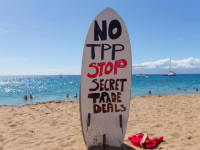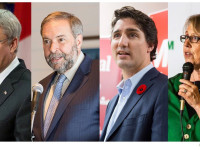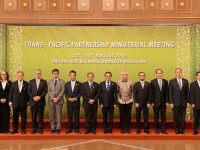The final Trans Pacific Partnership intellectual property chapter leaked this morning confirming what many had feared. While the Canadian government has focused on issues like dairy and the auto sector, it caved on key copyright issues in the agreement. As a result, works will be locked out of the public domain for decades at a cost to the public of hundreds of millions of dollars. Moreover, the government will “induce” Internet providers to engage in content blocking even where Canadian courts have not ruled on whether the content infringes copyright. As a result (and as expected – this was raised years ago), the government’s “made in Canada” approach to copyright – which it has frequently touted as representing a balanced approach – faces a U.S. demanded overhaul. In fact, even as other countries were able to negotiate phase-in periods on copyright changes, the Canadian negotiators simply caved.
The biggest change is a requirement to extend the term of copyright from life of the author plus 50 years to life plus 70 years. The additional 20 years will keep works out of the public domain for decades. The New Zealand government estimates that this change alone will cost NZ$55 million per year for a country that is one-ninth the size of Canada. Moreover, New Zealand was able to negotiate a delayed implementation of the copyright term provision, with a shorter extension for the first 8 years. It also obtained a clear provision that does not make the change retroactive – anything in the public domain stays there. Malaysia also obtained a delay in the copyright term extension requirement.











